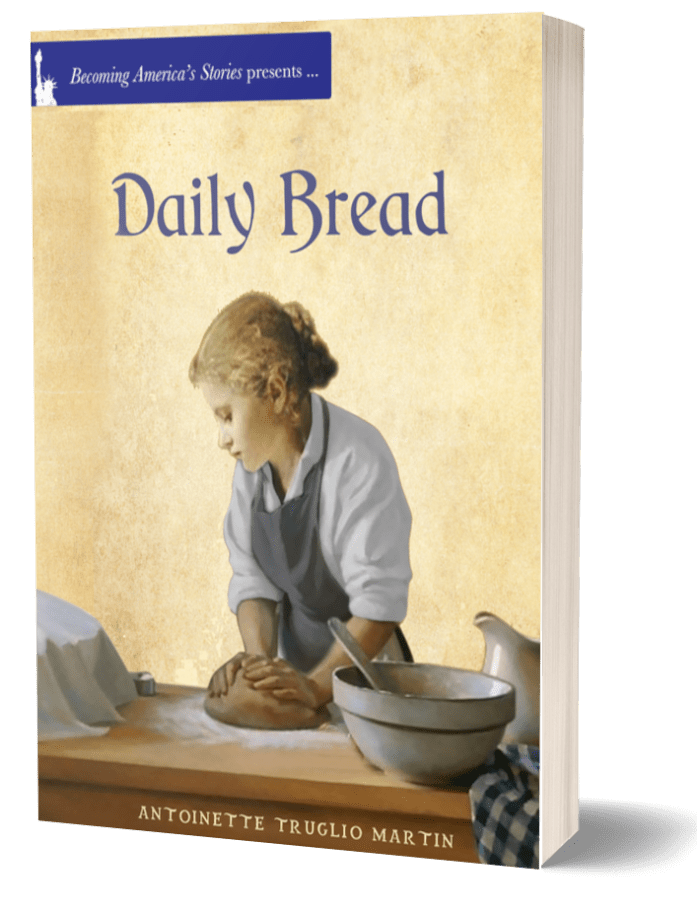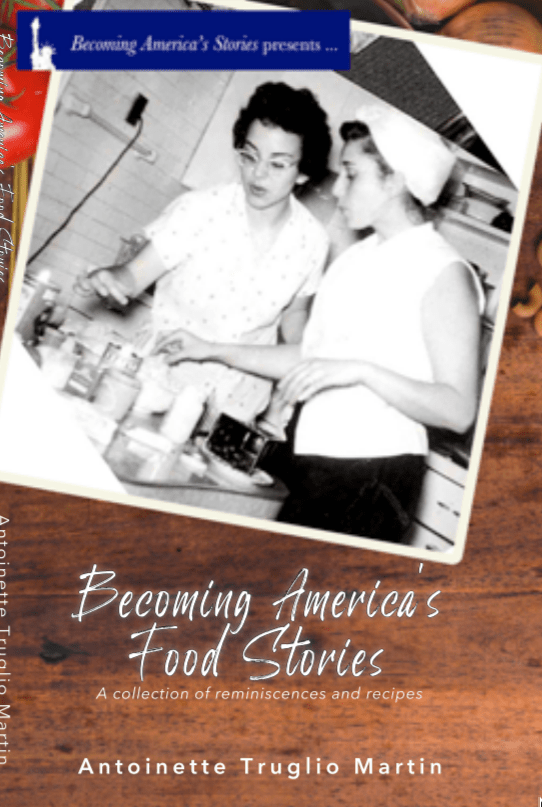Share your story by entering a brief excerpt or your blog link in the Comments box. I will find you if you include the hashtag #grandpromptstoasaskyourgrands in your blog, Facebook, Instagram, and/or Twitter posts. All entries will be compiled and links posted on the last Thursday of the month (Throwback Thursday).
July 13, 2021 Grand Prompt To Ask Your Grands
What was your favorite outside game to play in the summer?
Playing Patsy on the STreets
The Heart of Bakers and Artists (aka Daily Bread) and The Dreams of Singers and Sluggers take place in 1911 and follow the story of Lily Taglia, a nine—almost ten-year-old daughter of Sicilian immigrants living in a Little Italy Lower East Side three-room apartment with her large family. Lily, her sisters, and friends contend with burdensome responsibilities and dangers that lurk in their homes and on the streets.
The stories are born from listening to family stories told around the table. Holidays and Sundays were spent with family gathering for an all day meal together. While cooking, setting tables, playing cards, eating, drinking, slicing cakes, and sipping coffee, stories spun. My grandmother told the best tales and did not censor the fears and trespasses she experienced and perceived. Many were epic, but her stories about growing up in the Lower East Side came out in dribs and drabs. Perhaps she was most frightened during that time because she had little control and choices.
Children had to grow up fast and strong to survive the perils and hazards. But children were children. They played. If they were lucky enough to not have to work all day, they played with anything within reach. In 1911, play space was hard to find. The Lower East Side streets teemed with carts filled with food and wares, shouting peddlers, pushy people, horses and the new-fangled motor cars. Alleys held garbage and rats—both the four and two-legged species. Playgrounds and parks were popping up in the neighborhoods. Swing sets, a field to run and play ball, and gymnastic equipment were typically set up for children’s play.
From my grandmother’s and grand aunt accounts, little girls were not allowed to play in the parks. They had to make up their play on or near the front stoop next to their tenement building. There was always a mother or grandmother watching from a window while sewing piece work. The mamas and nonnas were the original helicopter moms.

“Patsy” came up frequently in my research. It looked and played like hopscotch. It was considered a girls’ game, but little brothers who were minded by their big sisters probably joined in as well.
Players scraped a box array on the sidewalk next to the stoop with a rock or chip of a brick. The same rock or chip would also serve as the token to toss into the boxes. I imagine the children making up chants as they played through the board. I also imagine that there may have been some skirmishes and challenges if the token was not thrown just so, or if a player landed two feet in one box. They honed competition, problem solving, and sports-girlship.
In my books, the game patsy comes up as the go-to game for my girl characters. It filled the play requirement the girls craved while they were kept close to home and carefully watched.
Enjoy ❤️. Like 👍. Share 😊.

Thanks you for indulging me. Great big thank you to Natalie the Explorer, the incredible host of Weekend Coffee Share.
_________________________________________
Join the Grand Prompts to Ask Your Grands journaling challenge. #grandpromptstoaskyourgrands

Schedule your virtual and live Book Club Events and Creative Writing Workshops.
Download FREE Curriculum Connections
If you had purchased a paperback or ebook Daily Bread and/or Becoming America’s Food Stories—Thank you!
Take a picture of you with Daily Bread and/or Becoming America’s Food Stories, and I’ll send you Reader’s Swag and add you to the Becoming America’s Stories Readers slideshow, coming soon! Kid pics are welcomed with parent or guardian permission. Don’t forget to leave a rating and quick comment on Amazon and/or Goodreads.
_________________________________________


“If you don’t cook with love, you have to get out of the kitchen.” Florence Messina

I asked my grandma a few years ago, and she told me that cross country skiing was a favourite outdoor activity. Thank you for the coffee!
LikeLiked by 1 person
Thank you for your reply. Where did she ski? Sweden?
LikeLiked by 1 person
Yes, in Dalarna Sweden. She grew up less than one hour from where I live now 🙂
LikeLiked by 1 person
I’m looking forward to reading the new book.
Soon I hope.
LikeLiked by 1 person
Just went to editing BUT if you are interested in reviewing and offering a blurb ,I can send you a pdf. 🤗
LikeLike
Hi Antoinette.
I’d love to offer a blurb if it would help. I also like to pay for my books when I know and care about the author and especially when I’m all but certain to enjoy it. Your call. My address is:
gary.wilson@oracle.com,
but if it bounces due to size, try rendering into a zip file which will compress it some and I can unzip it on my end.
LikeLike
Dear Ann
When I was younger we played a lot of jump rope
And stoop ball
While the teenage boys played Johnny on the pony
LikeLike
This was in Brooklyn?? WHat was Johnny on the pony?
LikeLike
Well 6 or 7 teenagers would line up in front of
Johnny pump (fire hygrant) and jump on backs of players whoever jumped closer to the pump would win
LikeLike
Yes Brooklyn
Well 6 or 7 teenagers would line up in front of
Johnny pump (fire hygrant) and jump on backs of players whoever jumped closer to the pump would win
LikeLike
I enjoyed reading this post and the B&W photos. Thank you for linking up with #weekendcoffeeshare.
LikeLiked by 1 person
Fun post. Thanks.
LikeLiked by 1 person
I love all of the history, family and food that you share.
I find it all very fascinating!
LikeLiked by 1 person